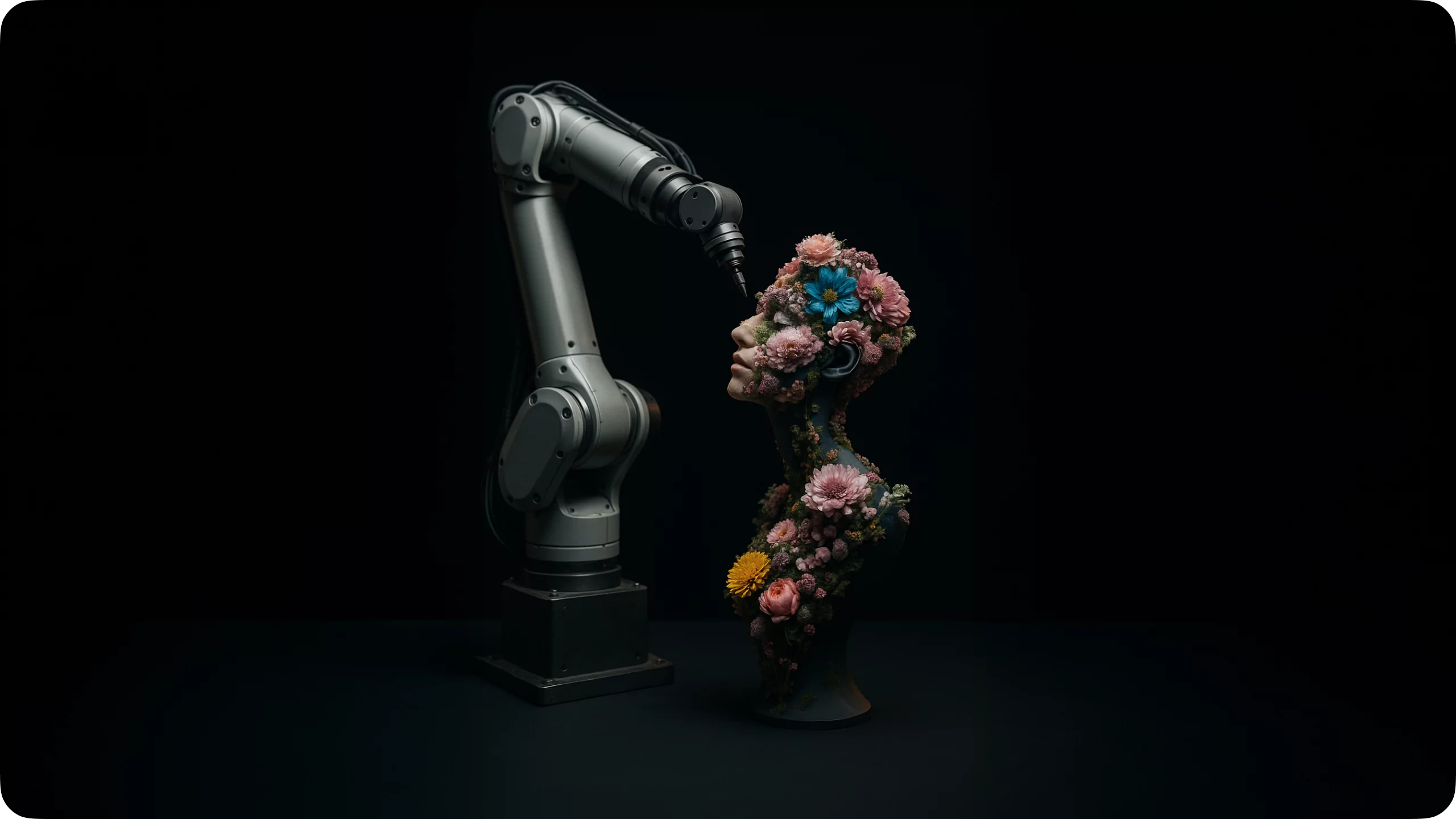At Younite, we don’t see AI as a replacement for creativity—we see it as a canvas.
A tool that, when shaped thoughtfully, can scale brand presence, deepen personalization, and make content creation feel more human—not less. But when AI begins generating content on behalf of a brand, the stakes change. Suddenly, we’re not just designing visuals or copy—we’re designing the logic that drives how a brand sounds, behaves, and adapts in real time.
The Core Challenge: Brand Consistency in a Generative System
In traditional brand systems, we build around static assets: logos, typefaces, color palettes, tone of voice documents. But AI doesn’t operate in static space—it’s responsive, probabilistic, and inherently variable. That variability is part of the magic, but it can also break trust if left unchecked. Generative systems that feel too generic lose brand value. But if they go too far off-script, they risk sounding inauthentic—or worse, inappropriate.
So the question becomes: how do you scale creative flexibility without compromising brand integrity?
Our Approach: Design Like You’re Training a Personality
When we work with clients to build AI systems that produce branded content—whether it’s text, voice, or immersive media—we think beyond style guides. We think in personas. Just like you wouldn’t hand the company Twitter account to an intern without some onboarding, AI needs a carefully defined personality framework to act on a brand’s behalf.
We start with key principles:
- Tone is code. We define tone not just with adjectives, but with prompts, examples, and behavioral logic.
- Boundaries are creativity. Guardrails are not restrictions—they’re tools that direct improvisation.
- Consistency is contextual. We teach AI not just what to say, but how tone and message change based on audience or platform.
These foundations become the AI equivalent of a brand book—living, testable, and tuned to real-world usage.
New Rules, New Tools: Guardrails as the Brand Guidelines of AI
Traditional brand guidelines were rigid for a reason: they needed to preserve identity across humans. But AI requires a different kind of structure—one built for both repeatability and variation. That’s where we introduce AI guardrails: logical frameworks, prompt conditioning, and feedback loops that nudge the AI toward staying “on-brand,” without boxing it in.
We design these guardrails dynamically, by:
- Embedding brand values directly into training sets or prompt chains
- Building AI personas that reflect real-world talent or recognizable voices
- Creating feedback systems that learn from user interaction to fine-tune outputs over time
- Using fallback behaviors to maintain tone even in unexpected contexts
This approach allows us to move from “brand policing” to “brand guiding,” where the AI knows how to behave, adapt, and grow—just like a human team member would.
Flexibility is the Key to Connection
The final piece is personal connection. When content is personalized by AI—when it adapts to someone’s location, interest, or even mood—it becomes meaningful. But only if the voice behind that personalization feels coherent and trustworthy. That’s why our systems aren’t just flexible—they’re intentionally human.
Whether we’re crafting an AI concierge for a hotel brand, or a digital host for a global experience platform, we bake in:
- A sense of personality that evolves with usage
- Empathy-driven design, so responses feel appropriate and authentic
- Localized voice tuning, to respect cultural nuance without diluting brand
Done right, this flexibility doesn’t erode a brand—it makes it feel more alive.
In Summary: AI Is the New Brand Medium
At Younite, we believe branded AI experiences aren’t just a technical challenge—they’re a creative one. One where voice, visuals, and personality have to be designed with care, trained with intent, and given space to breathe.
And with the right blend of creativity, control, and character, we help brands become more dynamic, more personal, and more present than ever before.
About the author
David Papworth
Dave is the Creative Cultivator (CCO) and Product Leader for Younite. His career has taken him through multimedia, development, design, innovation, and ultimately founding Younite. David's focus is on building teams that can tackle any challenge, look beyond their boundaries, and grow the collaborative relationships Younite desires with our clients.

